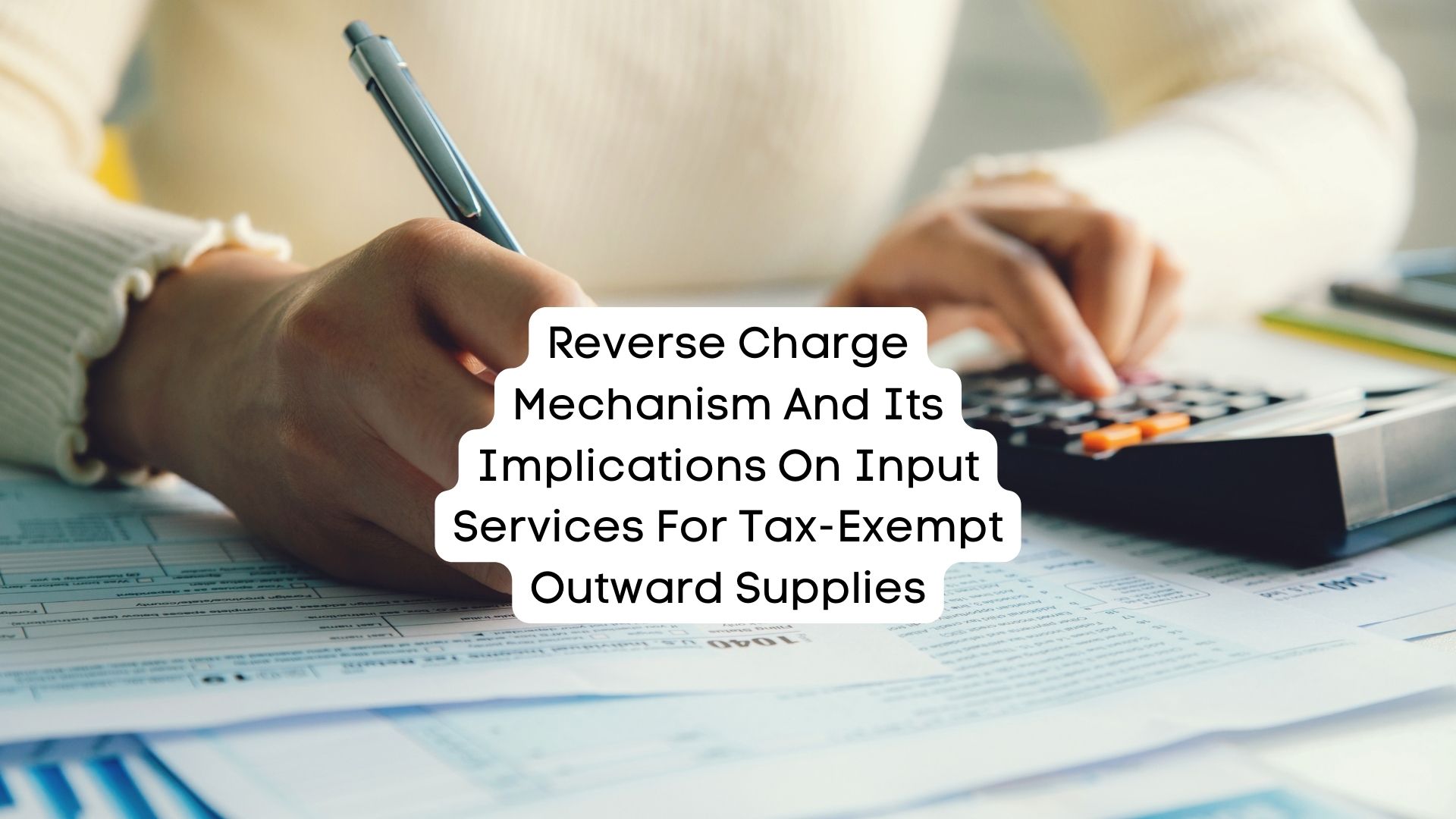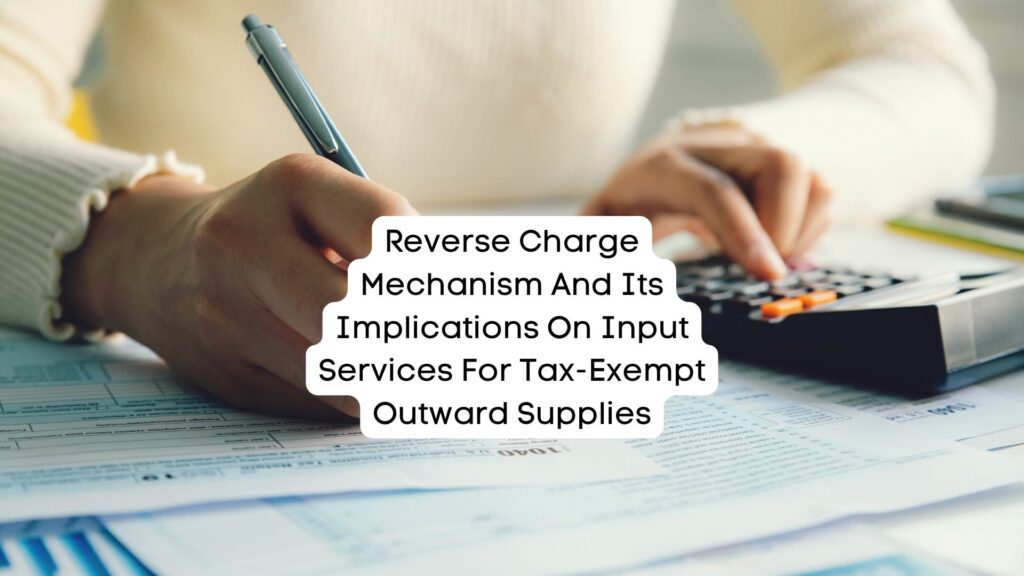
21 Feb Reverse Charge Mechanism and its Implications on Input Services for Tax-Exempt Outward Supplies

Introduction:
In the realm of taxation, the concept of reverse charge mechanism (RCM) plays a crucial role, particularly when dealing with scenarios where outward supplies are exempt from tax. Understanding the applicability and implications of RCM on input services becomes essential for businesses operating under such circumstances. Let’s delve into the intricacies of this mechanism under the GST regime.
Exploring Reverse Charge Mechanism (RCM):
In conventional tax setups, suppliers bear the responsibility of paying taxes on supplied goods or services. However, under RCM, this responsibility shifts to the recipient of the goods or services. This reversal of tax liability aims to broaden the tax base, especially in unorganized sectors, and facilitates the taxation of imported services.
Key Requirements within RCM:
For RCM to apply, certain prerequisites need to be met:
- Registration under GST is mandatory for the recipient.
- Accurate record-keeping of transactions subject to RCM.
- Clarity in invoices regarding the application of RCM.
- Tax payment on advance receipts for supplies under RCM.
Exploring the Start-up India Scheme:
The Start-up India Scheme, under the leadership of Prime Minister Modi, focuses on key areas to promote start-up growth:
- Provision of funding support and incentives
- Simplification of procedures and guidance for budding entrepreneurs
- Promotion of industry-academia partnerships and establishment of incubation centers
Applicability of RCM:
RCM scenarios are governed by specific sections of the GST Acts:
- Supplies specified by the Central Board of Indirect Taxes and Customs (CBIC).
- Transactions involving non-registered dealers supplying to registered ones.
- Provision of services through e-commerce operators.
Determining Time of Delivery:
The time of delivery for RCM transactions is crucial and is determined by factors such as receipt of goods, payment date, or specified timelines from the invoice date.
Rules of Registration under RCM: Entities liable under RCM must register under GST without being subject to threshold limits.
Responsibility for GST Payment under RCM:
Under RCM, the recipient bears the responsibility for GST payment, with the supplier indicating RCM applicability in tax documents.
Input Tax Credit (ITC) under RCM:
While suppliers cannot claim ITC for GST paid under RCM, recipients can avail ITC if the goods or services are used for business purposes.
Self-Invoicing:
In cases involving purchases from unregistered suppliers, self-invoicing becomes necessary as unregistered suppliers cannot issue invoices.
Exemptions within RCM:
Certain exemptions exist, such as exemption from RCM on domestic purchases from unregistered sellers if the total value of supply received is below a specified threshold.
Conclusion:
The understanding of RCM is vital for businesses, especially those dealing with tax-exempt outward supplies. Adhering to RCM regulations ensures compliance and facilitates smooth operations within the GST framework.


No Comments